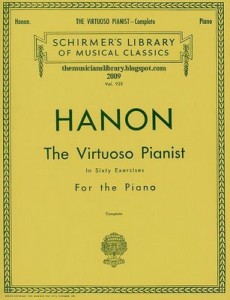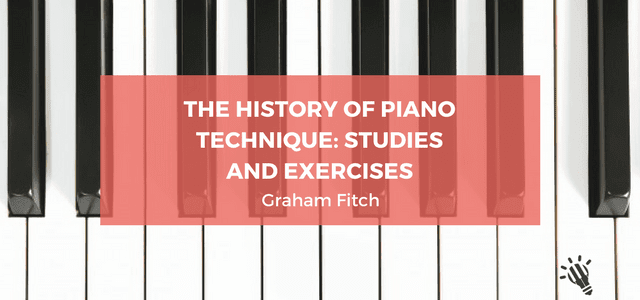I just had to repost this great article from Practising the Piano by Graham Fitch, which discusses the sometimes controversial topic of piano technique and more specifically, exercises and studies such as Hanon and Czerny.
The article, which is a précis of a section in his Practising the Piano eBook series, gives a quick summary of the exercises most commonly applied by teachers and a variety of views on their use.

For any technical gains to be made, we need the full involvement of the ear and the mind. We need a specific aim when practising – we simply can’t afford to go onto autopilot, think of what we’re going to have for dinner and hope the fingers will somehow do it all by themselves.
This is one reason that I like assigning exercises for students along with their scales. While it’s very easy to switch-off the mind during scales, it can be harder to do so when playing an exercise, particularly if a teacher has given clear instructions about how to play them to achieve whatever goal is in mind.
Unfortunately, many piano students fall into the “mindless practice” trap whether they are playing scales, exercises or even pieces, and it is an important job for us to teach them how to stay focussed.
For those aspiring to serious pianist status, knowing they have to practise for x number of hours per day, Hanon is a gift! It fills in loads of time and costs very little by way of concentration (after a while).
I think this really hits the nail on the head. When I issue students Hanon exercises, I give them a very strict 3-step process about how the exercise is to be played, with each exercise taking a student about 5 minutes. I might ask them to play three exercises in a practice with a total warm-up of about 15 minutes.
The clear goals and manageable time-frame tend to sustain focus and I believe that having specific ways to practice, makes all the difference. Accordingly, Graham describes how he uses exercises in his teaching and gives some ideas of different ways the exercises can be approached.
Altogether a great read that will get you thinking. Click here to check it out.
